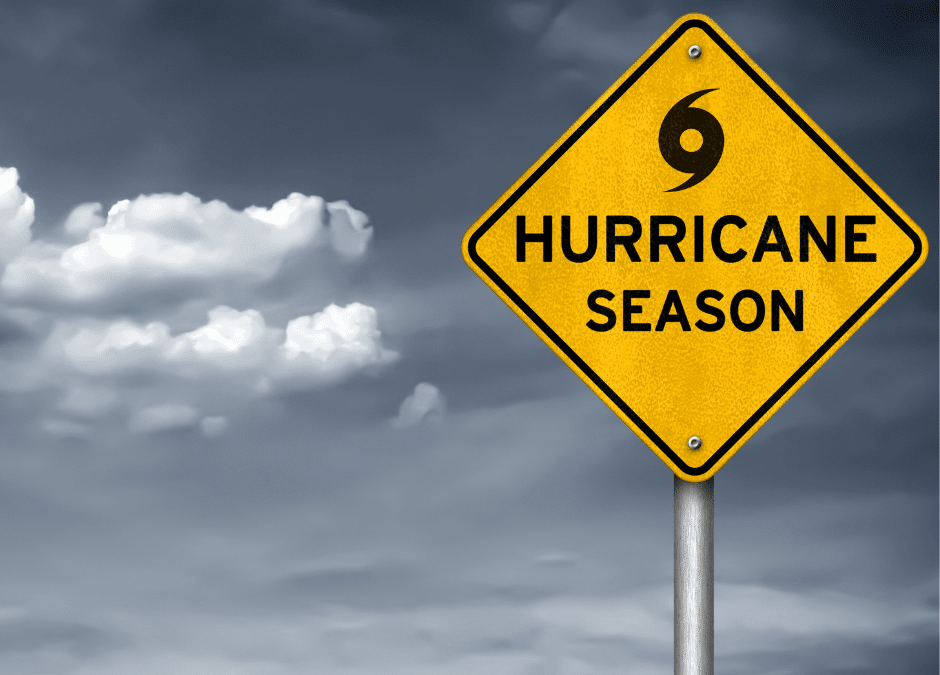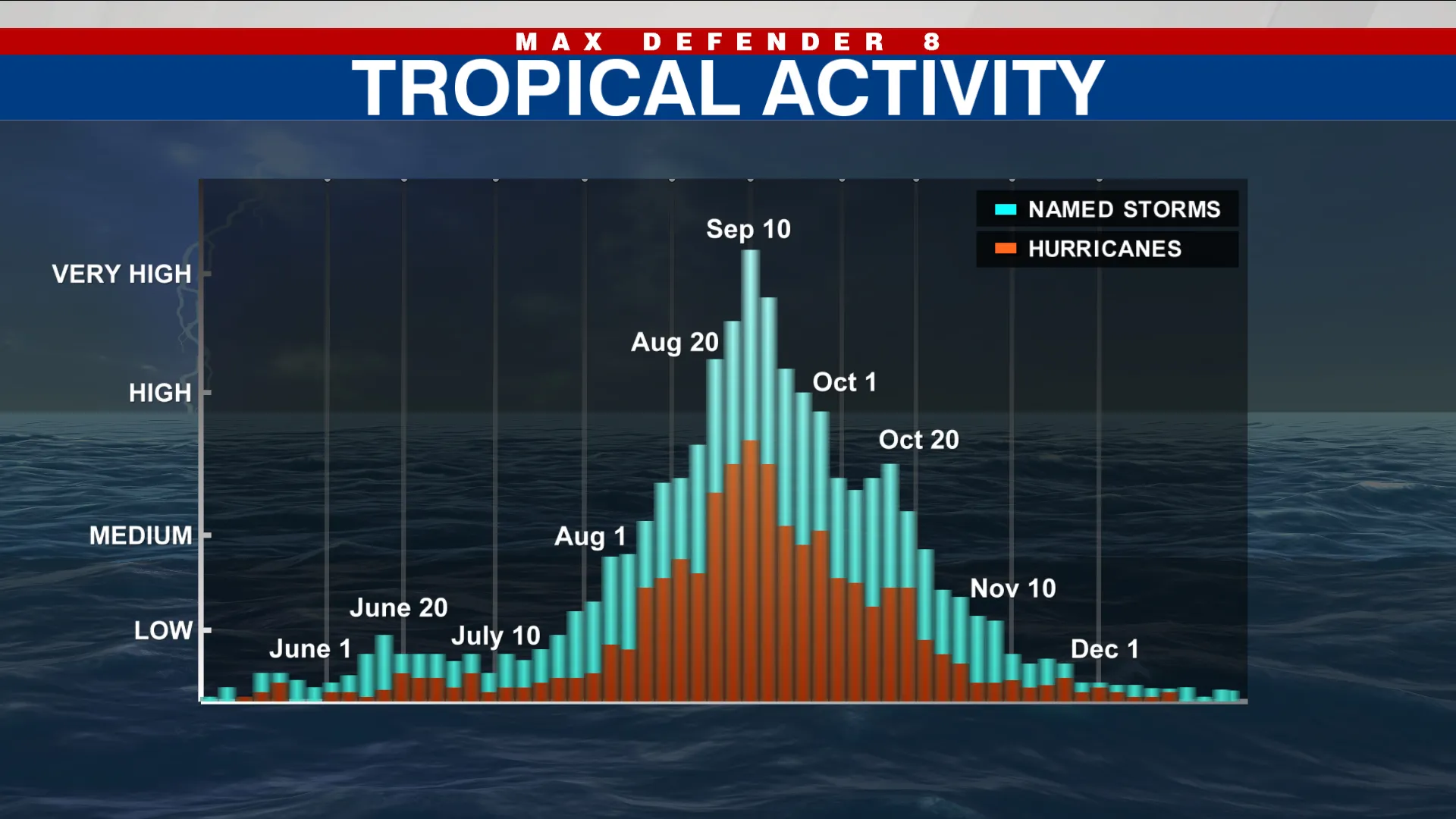
Can Hurricanes Reach Dallas?
Dallas, located more than 250 miles inland from the Gulf Coast, is far less likely to experience the direct effects of a hurricane compared to coastal cities like Houston or Galveston. While it’s rare for the eye of a hurricane to reach as far inland as Dallas, the city can still experience the effects of these storms, especially in the form of heavy rain, strong winds, and flooding. The remnants of hurricanes can travel inland, often downgrading into tropical storms or depressions, but they still have the potential to cause significant damage.
Historical Hurricane Impact in Dallas

Historically, Dallas has experienced indirect effects from hurricanes that made landfall along the Gulf Coast. Some notable examples include:
- Hurricane Harvey (2017): Although Hurricane Harvey devastated the Houston area, its effects were felt in Dallas in the form of heavy rain and isolated flooding.
- Hurricane Ike (2008): Ike made landfall in Galveston and brought heavy rain and wind to Dallas, causing power outages and minor flooding.
- Hurricane Rita (2005): Rita impacted the Texas-Louisiana border, but its remnants reached as far as Dallas, bringing rain and thunderstorms.
While hurricanes are rare in Dallas, their remnants can still create dangerous weather conditions, especially during the Atlantic hurricane season, which runs from June to November.
How Hurricanes Can Affect Dallas
Although the eye of a hurricane is unlikely to reach Dallas, the city can still be impacted by the storm’s outer bands. Here are some ways hurricanes and tropical storms can affect Dallas:
1. Heavy Rainfall and Flash Flooding
The most common impact of a hurricane in Dallas is heavy rainfall. When a hurricane moves inland and weakens, it often dumps large amounts of rain across a wide area. This can lead to flash flooding, especially in low-lying areas or places with poor drainage. Dallas has experienced flash floods from the remnants of hurricanes, and localized flooding can cause significant damage to homes and infrastructure.
2. Strong Winds
Even as hurricanes weaken to tropical storms or depressions, they can still bring strong winds to inland areas like Dallas. These winds can topple trees, power lines, and damage roofs. The risk of wind damage increases if a storm tracks close to the city or maintains its strength as it moves inland.
3. Tornadoes
Another potential threat from hurricanes is tornadoes. Hurricanes and tropical storms can spawn tornadoes, which can cause localized damage far from the storm’s landfall. While tornadoes are typically more common during severe thunderstorms, they can also occur during hurricane events, increasing the risk to homes in Dallas.
For more information on how hurricanes can affect inland areas, visit the National Hurricane Center.
How to Prepare for a Hurricane or Tropical Storm in Dallas

Even though the likelihood of a hurricane directly hitting Dallas is low, it’s still important to be prepared for the effects of hurricanes or tropical storms. Here are some key steps you can take to protect your home and family:
| Step | What to Do |
|---|---|
| 1. Stay Informed | Monitor local weather forecasts and alerts during hurricane season. Sign up for weather notifications from the National Weather Service (NWS) or download a weather app to stay up-to-date on storm paths and advisories. |
| 2. Prepare an Emergency Kit | Keep an emergency kit on hand that includes essentials like bottled water, non-perishable food, flashlights, batteries, and first-aid supplies. If power outages are expected, having these items ready can make a significant difference. |
| 3. Protect Your Home | Check your roof, gutters, and windows for any vulnerabilities before storm season. Consider installing storm shutters or reinforcing windows if high winds are expected. Trim trees and branches that could fall during a storm and clear gutters to ensure proper drainage. |
| 4. Secure Outdoor Items | Strong winds can turn outdoor furniture, grills, and other items into projectiles during a storm. Secure or bring them indoors to prevent damage to your home or neighbors’ property. |
| 5. Be Ready for Flooding | If your home is in a flood-prone area, have sandbags ready to block water from entering your home. Consider installing a sump pump to keep your basement dry, and check your insurance policy to ensure you’re covered for flood damage. |
Taking these steps can help you minimize the risks of property damage and keep your family safe during hurricane season, even in inland areas like Dallas.
How to Handle Flooding and Water Damage
If your home in Dallas experiences flooding due to heavy rainfall from a hurricane or tropical storm, it’s essential to take immediate action to prevent further damage and protect your health. Here’s what to do if your home floods:
1. Turn Off the Power
If there’s standing water in your home, turn off the electricity to avoid the risk of electrocution. If you’re unable to access your breaker box safely, call an electrician for assistance.
2. Remove Water and Dry the Area
Use a wet/dry vacuum, pumps, or buckets to remove standing water from your home. Once the water is removed, use fans, dehumidifiers, and open windows to dry out the affected area as quickly as possible to prevent mold growth.
3. Clean and Disinfect
Floodwater can contain contaminants, so it’s important to clean and disinfect surfaces that came into contact with water. Use a solution of bleach and water (one cup of bleach per gallon of water) to disinfect walls, floors, and other hard surfaces.
4. Prevent Mold Growth
Mold can start growing within 24-48 hours in damp environments, so it’s crucial to address any water damage promptly. If mold growth is already present or if you suspect hidden mold, contact a professional mold remediation service like Citywide Mold Mitigation to safely remove the mold and prevent it from spreading.
For more detailed advice on how to handle flooding, check out the Red Cross’s flood preparedness page.
When to Call Citywide Mold Mitigation for Help
If your home in Dallas has been affected by a tropical storm or heavy rain, it’s important to address water damage and mold growth as soon as possible. Citywide Mold Mitigation offers expert mold removal, water damage restoration, and storm recovery services to help protect your home. Contact us today to schedule a consultation and ensure your home is safe and restored after a storm.
FAQ
| Question | Answer |
|---|---|
| How likely is it for a hurricane to hit Dallas? | It’s very unlikely for a hurricane to hit Dallas directly, as the city is located more than 250 miles inland. However, Dallas can still experience heavy rain, strong winds, and flooding from the remnants of hurricanes and tropical storms. |
| How can hurricanes affect Dallas? | Hurricanes that make landfall on the Texas coast can bring heavy rainfall, flash flooding, strong winds, and even tornadoes to inland areas like Dallas. The severity of the impact depends on the strength and path of the storm. |
| How can I prepare for a tropical storm in Dallas? | Prepare by staying informed about weather alerts, securing outdoor items, trimming trees, protecting your home’s windows and doors, and having an emergency kit ready. If flooding is expected, use sandbags and ensure your home’s drainage systems are working properly. |
| Does homeowners insurance cover hurricane damage in Dallas? | Standard homeowners insurance typically covers wind damage caused by hurricanes, but it may not cover flood damage. You may need separate flood insurance, especially if your home is located in a flood-prone area. |
| When should I call a professional for flood damage? | If your home has experienced significant water damage or if you notice mold growth, it’s best to call a professional like Citywide Mold Mitigation for expert water damage restoration and mold removal services. |
If you’ve been impacted by flooding from a tropical storm or heavy rain, reach out to Citywide Mold Mitigation for professional water damage and mold remediation services today.

